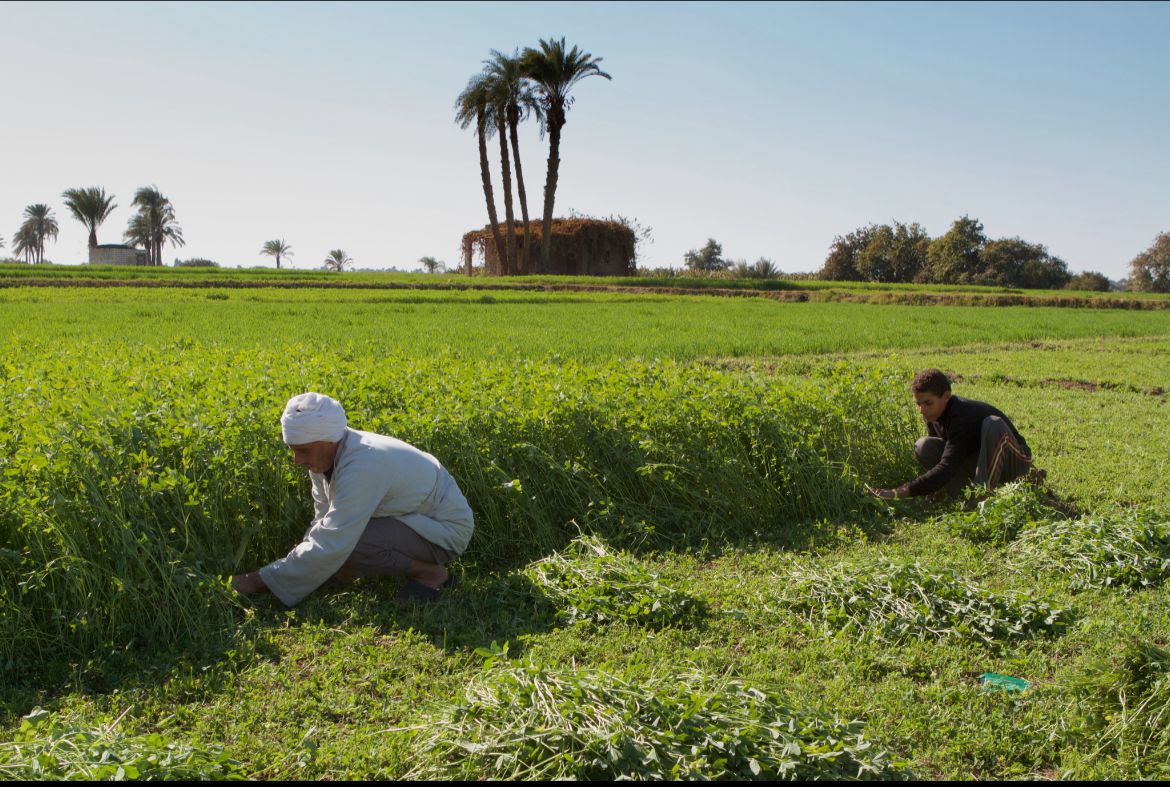Egypt is increasingly positioned as a key player in the global energy transition, attracting significant international investments in renewable energy and green hydrogen. A new report by Greenpeace Middle East and North Africa (MENA) and the MENA Feminist Movement for Economic, Development, and Ecological Justice (MENAFem) raises critical questions about the nature and impact of these investments calling for a shift toward a more inclusive and justice-centered approach.
The joint analysis examines European investments in Egypt’s and Morocco’s energy and agriculture sectors including oil and gas, renewables, green hydrogen, and industrial agriculture. While these investments present opportunities, the report highlights their social, economic, and environmental implications, particularly for local communities.
Egypt has long articulated its ambitions to become a regional energy hub and a leader in sustainable development. The country has announced more than $40 billion in green hydrogen and renewable energy projects, including megaprojects like the Benban Solar Park and the Gabal El-Zeit Wind Farm. Yet the report raises important questions about whether such large-scale initiatives genuinely benefit local communities or inadvertently perpetuate extractivist patterns and export-oriented development models.
Ghiwa Nakat, Executive Director of Greenpeace MENA, commented: “Greenpeace MENA is committed to working with key stakeholders in Egypt to develop policies and initiatives that align with regional realities, ensuring that Egypt’s green transition benefits national economic development and local communities and mitigates climate vulnerabilities.”
To advance a more equitable energy future, the report calls for a fundamental rethinking of current investment models. It advocates for a shift toward decentralized, community-led renewable energy solutions that prioritize domestic needs over export-driven growth. It also urges stronger policies to phase out fossil fuels, expand local ownership of renewable projects, and boost investment in sustainable agriculture.
As examples of this alternative vision, the report spotlights grassroots efforts such as the Sinaweya Initiative in South Sinai and the biodynamic farming model of SEKEM. Though Greenpeace MENA is not directly involved, it has documented Sinaweya’s work as part of an upcoming documentary. These community-led efforts offer practical models for food sovereignty, ecological restoration, and local empowerment serving as powerful counterpoints to top-down, megaproject-driven strategies.
“Foreign investment alone does not guarantee justice or sustainability. Our communities are not just labor pools or land banks for global markets. They are landowners, knowledge holders, problem solvers, and key to building resilient and fair green economies. We need energy systems that empower people, not extract from them, systems rooted in rights, ownership, and dignity.” stated Shereen Talaat, Director of MENAFem Movement For Economic, Development, and Ecological Justice (MENAFem)
Hanen Keskes, Greenpeace MENA Campaign Lead, stressed: “The path to sustainability must be inclusive and equitable, placing people and the environment at the center of economic decision-making. We must advocate for a just transition that prioritizes affected communities and ensures long-term ecological and economic resilience.”
Ultimately, the study calls for foreign investments in Egypt to be rooted in genuine partnerships, ones that promote self-determination rather than dependency. Egypt, it argues, must take a more proactive role in shaping its renewable energy, hydrogen, and agricultural sectors in ways that align with national interests and prioritize the wellbeing of its people. However, this will only be made possible through a reform of the current global financial system, which keeps countries like Egypt in cycles of debt and extractivist economic models.As Egypt stands at a crossroads in its green transition, ensuring that sustainability efforts are socially inclusive and environmentally sound is more urgent than ever.
About Greenpeace MENA:
Greenpeace Middle East and North Africa (MENA) organization was established in 2018 as a politically and financially independent organization to address the complex and unique environmental and climate challenges facing the MENA region. The organization dedicates its efforts to empowering local communities and working with allies to develop innovative and effective solutions that help individuals live in harmony with the environment. The organization’s vision is to preserve the natural wealth and diverse local communities of the region and ensure a decent life for future generations in a world of peace, sustainability, and justice. Greenpeace MENA believes that progress in economic, social, and technological fields can be achieved without negatively impacting nature. It works creatively and collaboratively with partners and advocates to mitigate the impacts of the climate crisis and promote sustainable practices and climate change adaptation. https://www.greenpeace.org/mena/en/












التعليقات مغلقة.